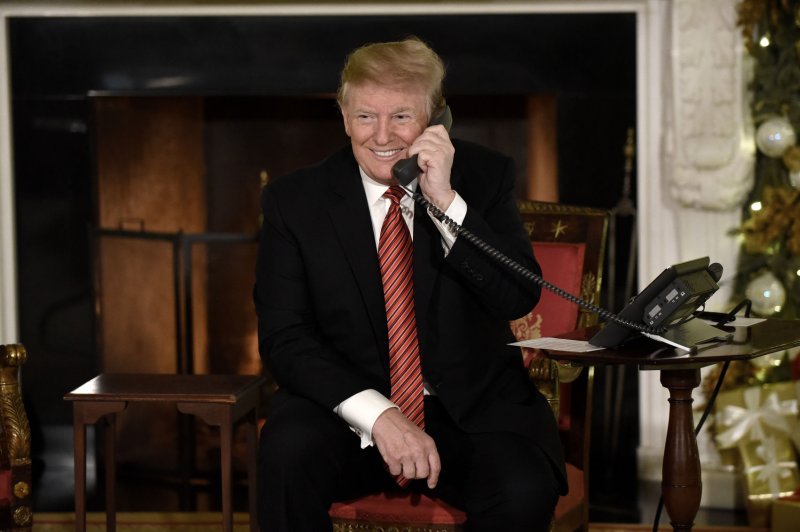President Donald Trump signed a bill that gives law enforcement and phone customers more options in fighting robocalls. Photo by Olivier Douliery/UPI |
License Photo
Dec. 31 (UPI) -- President Donald Trump signed a bill that offers greater protection for U.S. consumers from unsolicited robocalls and reauthorized an act that helps state and local law enforcement agencies process untested DNA evidence from unsolved crimes.
The Telephone Robocall Abuse Criminal Enforcement and Deterrence Act gives regulators more time to find robocall scammers and levy fines for those who are caught, promote call authentication and blocking adoption, and identify those who repeatedly violate the law.
"This historic legislation will provide American consumers with even greater protection against annoying unsolicited robocalls," White House Press Secretary Stephanie Grisham said in a statement Monday.
"American families deserve control over their communications, and this legislation will update our laws and regulations to stiffen penalties, increase transparency, and enhance government collaboration to stop unwanted solicitation," the statement said.
Funding for the Debbie Smith DNA Backlog Grant Program, which has helped local and state law enforcement make nearly 200,000 DNA matches in criminal cases over the past 15 years, expired Sept. 30.
The Senate passed reauthorization in May and the House did so in October. It was first passed in 2004.
"We know that DNA is much more likely than fingerprints to result in the identification of a criminal, yet thousands of rape kits currently sit untested in labs and on police storage shelves across the nation," a Grisham statement said.
"The Debbie Smith Act originally became law to provide local and state crime laboratories the resources to end the backlog of untested DNA evidence from unsolved crimes," she added.
The law was named after a Virginia woman who was raped in 1989, but a DNA backlog left her rape kit untested until 1994, when a match was made and a man arrested.















